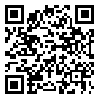Volume 25, Issue 3 (2018)
EIJH 2018, 25(3): 79-97 |
Back to browse issues page
Download citation:
BibTeX | RIS | EndNote | Medlars | ProCite | Reference Manager | RefWorks
Send citation to:



BibTeX | RIS | EndNote | Medlars | ProCite | Reference Manager | RefWorks
Send citation to:
Tajeddin Z, Rezanejad A. Intercultural teaching in L2 classrooms: Exploring English language teachers’ beliefs. EIJH 2018; 25 (3) :79-97
URL: http://eijh.modares.ac.ir/article-27-44336-en.html
URL: http://eijh.modares.ac.ir/article-27-44336-en.html
1- Professor of Applied Linguistics at Allameh Tabataba’I University and Tarbiat Modares University, Iran , zia_tajeddin@yahoo.com
2- Ph.D. candidate in TEFL at Allameh Tabataba’i University, Iran
2- Ph.D. candidate in TEFL at Allameh Tabataba’i University, Iran
Abstract: (1349 Views)
With increasing intercultural communication among people from diverse linguistic and cultural backgrounds, the integration of language and culture has recently been foregrounded in language education. This has led to a growing need for studies on intercultural communicative competence. To address this need, this study aimed to afford an insight into the beliefs of 20 Iranian language teachers on intercultural language teaching (ICLT). Based on a mixed-method design, two different instruments were used to collect the data. First, an ICLT questionnaire which included 12 items was administered to 20 teachers. This study also used semi-structured interviews to obtain an in-depth understanding of the EFL teachers’ attitudes toward ICLT. The findings from the questionnaire revealed that the teachers were favorably disposed toward ICLT and thought that culture teaching is as important as language teaching. They believed that language teachers are required to inform the learners of intercultural issues. Also, the thematic content analysis of the interviews led to the discovery of four main themes, namely definition of culture, ICLT and its significance, challenges in ICLT, and sources used by the teachers to improve their intercultural knowledge. However, many teachers’ responses in the interviews indicated some degree of uncertainty regarding the concept of ICLT, as they were not confident how to integrate language and culture or how to deal with challenges in implementation of ICLT. These findings imply as the teachers’ perceptions would guide their practices in the classroom, more attention needs to be devoted to the inclusion of ICLT-related topics in language teacher education courses to equip the teachers with requisite skills and expertise.
Keywords: Intercultural communicative competence, Intercultural language teaching, Language teacher perceptions, Non-native teachers, Intercultural awareness
Article Type: Original Research |
Subject:
Arts and Humanities (General)
Received: 2020/07/10 | Accepted: 2018/06/15 | Published: 2018/06/15
Received: 2020/07/10 | Accepted: 2018/06/15 | Published: 2018/06/15
Send email to the article author
| Rights and permissions | |
 |
This work is licensed under a Creative Commons Attribution-NonCommercial 4.0 International License. |







